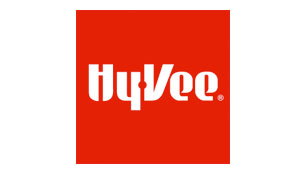Power Breakfast: Risk Aversion

Are Central Iowans too risk-averse? And if they are, how can that stifle start-up opportunities and economic growth? Start-up experts, a financial planner and an economic expert will discuss this issue at the Business Record’s Power Breakfast on Sept. 13. The consensus seems to be that Iowans are risk-averse by nature, and that can affect start-ups and business development at established companies. The Business Record asked each panelist and the event moderator…
What are the downfalls of being risk-averse as it relates to business?

Executive director, Business Innovation Zone
Many times new companies come from frustrated employees of existing companies. If you’re the up and rising mid-level manager in a company and you’re three rungs down from the top, and the senior manager has gotten very comfortable and is really set in their ways, many times that’s what breeds the opportunity to go out and say “I’m going to be a disrupter.” Beware of creating your own competition because you didn’t recognize that if you don’t allow those people in your company to explore things like cloud computing or a different business strategy, they’re most likely the ones who will leave and try to become the competitor. They learned it under your company. The other side of that argument is let them leave and go build it, and if you like what they did go buy it back.

CEO, StartupCity Des Moines
I think we’re not risk-averse as a people because the people are very diverse and there’s risk going on in different forms in different sectors. For the sectors that are not represented as well as they need to be for future growth, we’re not as risky as we should be. That would be sectors that we’re net exporting (people) and we’re not attracting talent enough to grow the next generation of jobs. We need to create more risk because we need to create more opportunities. There will be a lot more failure, but there will be a lot more success and it will create a lot more opportunities. That will help retain (workers).

Principal,VentureNet Iowa
You have a lot of money that’s disappeared from personal balance sheets, so there’s not as much discretionary money as there was. That’s a simple fact. We had a bubble and had the effects of that. But by the same token, the people who are still in the game, some of them are being more circumspect because they don’t want to be burned, and they’re spending more time evaluating opportunities. And they have more opportunities to choose from. I get the sense that there are probably just as many start-ups now as there were a few years ago, so certainly it’s a buyers’ market, and just like banks and corporations that are sitting there waiting for something to happen, things that are beyond their control, they’re waiting for something that indicates it’s safe to go back in the water.

Economist, Iowa State University
The definition of a recession is that we had too many of everything. We had too much production capacity, too much consumption based on an irrational relationship of consumption to household income. And the nature of the recession is that we had to contract, and then we had to sort it all out. What did we really all want? Because before we were being indiscriminate, and we were indiscriminate in terms of we were buying everything and we didn’t care. We don’t know now. We don’t know what consumers want; we don’t know what the rest of the world wants. … We invest in agriculture; we invest in advanced manufacturing. We say Iowans are risk-averse, but not in those categories. They take a lot of risks in the territories that they are used to, but they won’t go out into other areas, and for Iowans to thrive in other areas that the state is not traditionally known for, it’s getting people to move out into that territory.

Founder, Dwolla Corp.
When it comes to the tech world, I think Des Moines has a long way to go, as do I, when it comes to understanding the way the market works and things like that, which maybe makes us want to stop and understand prior to just pulling the trigger on things, which isn’t necessarily bad. It’s a culture thing. I think that part of it is just setting the standard that it’s OK to take a risk and invest in a company. If you lose your money investing in an idea, now you know your idea doesn’t work and you can try something else which makes this idea more likely to actually work. I think part of our culture is if you put $1,000 into something and it doesn’t work, you should be embarrassed that it didn’t work, or you should be embarrassed about losing that $1,000. I think there’s merit in attempting something and investing in yourself and trying your ideas.










